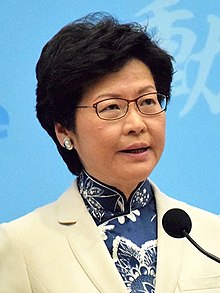Dear Commons Community,
Unicaf University is an African institution founded in 2012 with programs in fields like business, education and health care management. Offering degrees largely online, with some blended learning options, Unicaf reaches 18,000 students across the continent, many of them working adults.
Unicaf offers the convenience of anytime, anywhere study — as long as the internet service is sufficient. The cost of a degree, about $4,000, is not cheap by African standards, but it is within reach of the region’s growing middle class, and many students receive scholarships.
As American colleges rush to recruit in China or to build campuses in Singapore, Africa has an important higher education story to tell. Of the continent’s 1.2 billion people, 60 percent are under 25, and thanks to a broad campaign over the last several decades to improve elementary and secondary school participation rates, the number of high school graduates is higher than ever.
What’s more, the economy is beginning to diversify and is generating an increasing demand for a more highly skilled workers..
The region’s universities, however, are not keeping pace. Less than 10 percent of college-age students in sub-Saharan Africa are enrolled in higher education, according to the World Bank. By contrast, in the wealthy member countries of the Organization for Economic Cooperation and Development, the share is closer to 80 percent. A recent New York Times article reports:
“Africa’s longstanding public universities have wrestled with the pressure to expand capacity without sacrificing quality, and not always successfully, said Jamil Salmi, a higher education consultant and former World Bank official from Morocco. Such universities have grown up, but they vary in caliber and can be costly. Going abroad to study is an option for only a select few.
“All of these efforts on their own are not adequate,” said Peter Okebukola, president of the Global University Network for Innovation in Lagos, Nigeria, who has been involved with several efforts to expand online, or distance, education across Africa. “To improve access in Africa will require a multiplicity of ways.”
Could one of those be a Pan-African, Cyprus-based, mostly online university? Nicos Nicolaou, Unicaf’s founder, said he believes so, despite issues with internet access across Africa. The university gives every student a tablet, and course materials can be downloaded and accessed offline. Power failures, however, are common, and dependable internet is far from guaranteed.
But Mr. Nicolaou remains positive. He was born in northern Cyprus, and like many Cypriots, he studied overseas. Returning home, he wanted to play a part in rebuilding the country’s education system, which had been disrupted by civil war. A private college he helped start became the University of Nicosia. It was working there that first took him to Africa in 1989.
Initially, Unicaf was essentially a distance-learning platform, taking courses offered by British and American universities, translating them to an online environment and marketing them to Africans. Partner institutions set admissions standards, approve hiring and determine whether students meet graduation requirements.
Ariane Schauer is provost of Marymount California University, a small Catholic college outside Los Angeles. “It was very aligned with our mission of serving the underserved,” Ms. Schauer said of the decision to offer an M.B.A. through Unicaf.
Under a new president, Marymount has ended the relationship to concentrate on the home campus, but Ms. Schauer said the university, which awarded 150 degrees to African students over six years, was pleased with the partnership.
For universities it pairs with, Unicaf — which takes a share of tuition revenues, typically 20 to 35 percent — provides an entrance into a new market with reduced risk. But its financial model, which rests on volume, is not always an easy fit for western universities. A $60,000 M.B.A. program, which is commonplace in the United States, costs four years’ average salary in Nigeria, one of Africa’s wealthiest countries.
For some students, however, the ability to get an international degree is central to Unicaf’s appeal.
While Mr. Nicolaou is in talks with several more potential British partners, Unicaf is moving toward offering more of its own degrees, accredited by African national regulatory bodies. It already is recognized to offer degrees in Malawi and Zambia and hopes to soon add Rwanda and Zimbabwe, says Jonathan Kydd, a former dean of international programs at the University of London who advises the Unicaf board.
Mr. Kydd, a development economist who spent much of his career in Africa, says it is important that a degree have practical value in the local labor market. “A student in Africa doesn’t need a degree from the American Ivy League to get the kind of job he wants,” he said.
After focusing on graduate programs, Unicaf also plans more undergraduate degrees. Bachelor’s programs are now offered only in Malawi and Zambia, where Unicaf has bricks-and-mortar campuses. (It has an additional nine learning centers, where students can access support services.)
…
Skepticism about online education remains, says Mr. Okebukola, who is also chairman of the council at the Open University of Nigeria. If Unicaf degrees earn regulatory approval in more African countries that will help, but many Africans see distance learning as “second grade,” he says. Online providers need to prove their value in the job market, he says. “The test of the pudding is in the eating.”
By 2023, Mr. Nicolaou hopes Unicaf will enroll 100,000 students. That sort of increase in a few short years may sound crazy, he acknowledged to an outsider. “But when I talk with people I know in Africa,” he said, “they think 100,000 is a pessimistic target. That’s because the need is in the millions.”
In 2014, I was invited to South Africa to discuss online and blended learning with administrators and faculty at North-West University. The demand for higher education was as great there as described in the above article. However, building new campuses was almost financially impossible. They saw online technology as the only vehicle for expanding student access.
Tony








